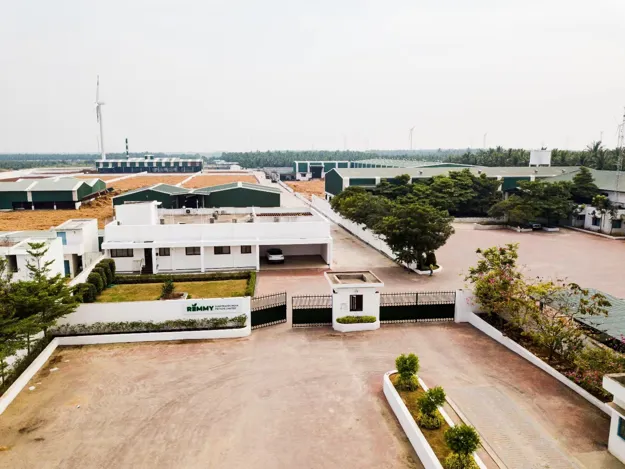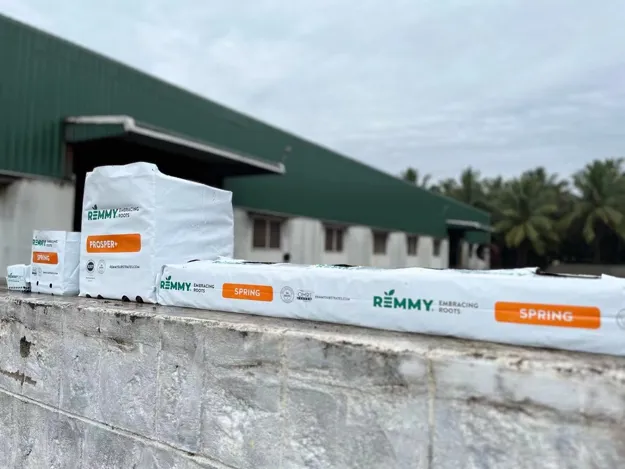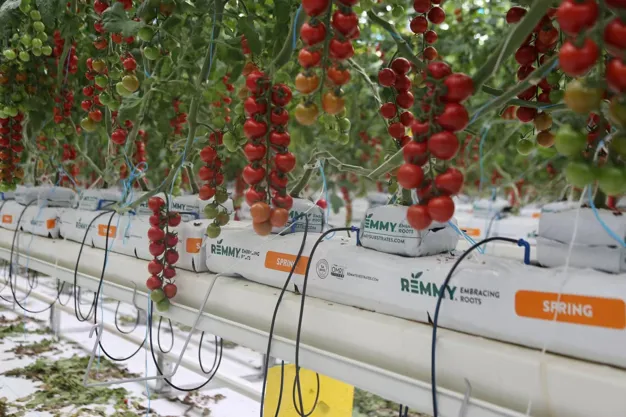Rockwool, peat, and cocopeat are all common substrates in soilless cultivation. Relatively speaking, cocopeat is a renewable resource and can be naturally degraded, making it an ideal cultivation medium. Its good water retention and air permeability can meet the different needs of different crops. During the conversation with Mr. Ji Zhen from Remmy Substrates, we learned about the use of cocopeat in the Chinese market.
The materials of Remmy cocopeat are from India and desalinated and buffered through an automatic spray system, which effectively solves the problems caused by the use of traditional cocopeat, such as the burning seedlings due to the excessive salt content. In addition, the drying equipment imported from Germany ensures sufficient supply capacity during the rainy season, and the sewage treatment system provides a guarantee for sustainable development. "We mainly provide high-end buffered cocopeat in China, focusing on high-end industrial parks and berry planting. China's soilless cultivation is growing rapidly, including the establishment of many high-end flower agro parks in Yunnan, where the location has superior natural conditions. The planting area of traditional open field cultivation is decreasing, which has effectively improved the quality standard of flower planting. These flower parks have high requirements on the substrate, and safety and stability are the first elements. A good substrate helps to grow high-quality products. We have long-term cooperation with high-end parks, and our products have multiple international certifications, including Dutch RHP substrate certification, MPS certification, OMRI US organic certification, and SA8000 social responsibility standards. "

"With the rapid development of soilless cultivation, the market also needs more time to learn. Many growers in China are price-sensitive, especially those who have transferred from traditional cultivation, and need time to identify and understand the substrate, in order to form a benign development of the market.”

Talking about the future, Ji said, "China's flower industry is a relatively stable industry and will continue to develop in the future. Berries, especially blueberries, are developing very rapidly. The high-profit margin of blueberries has attracted a large number of people to join the competition. It is said that soilless cultivation will be used more and more widely in the future.”

